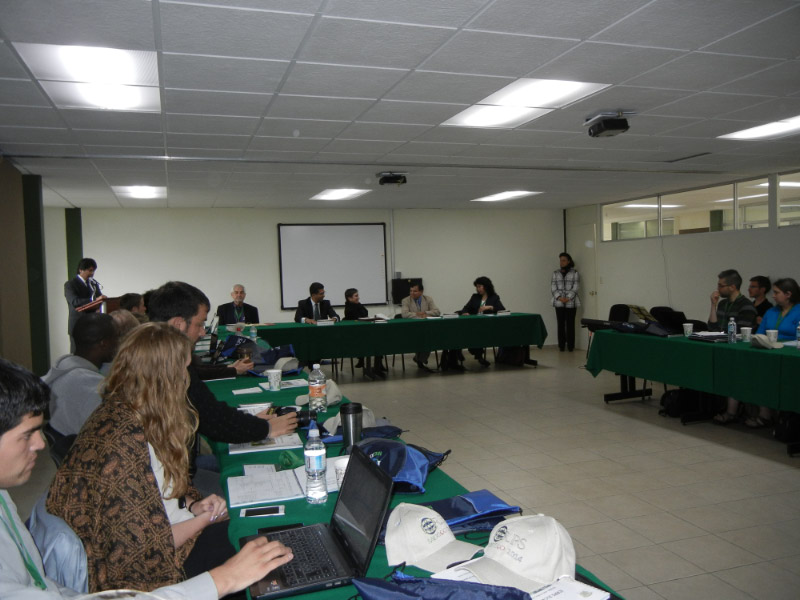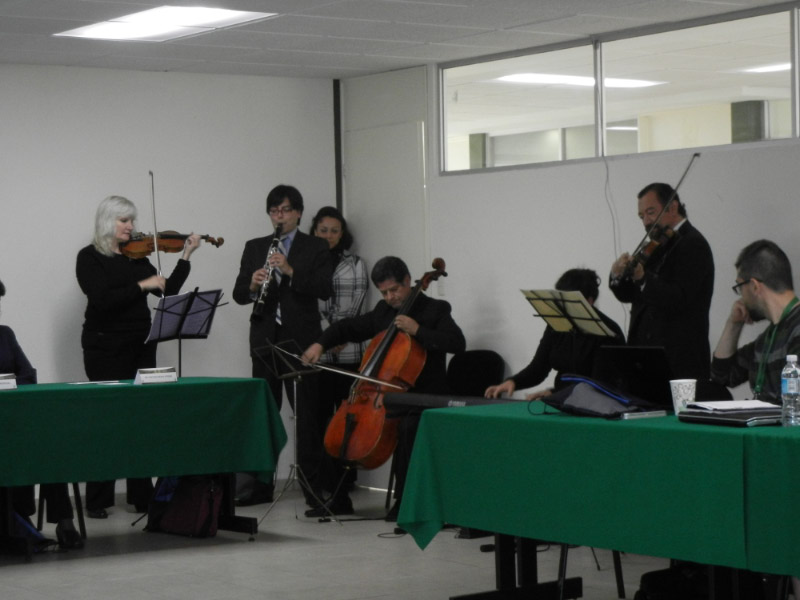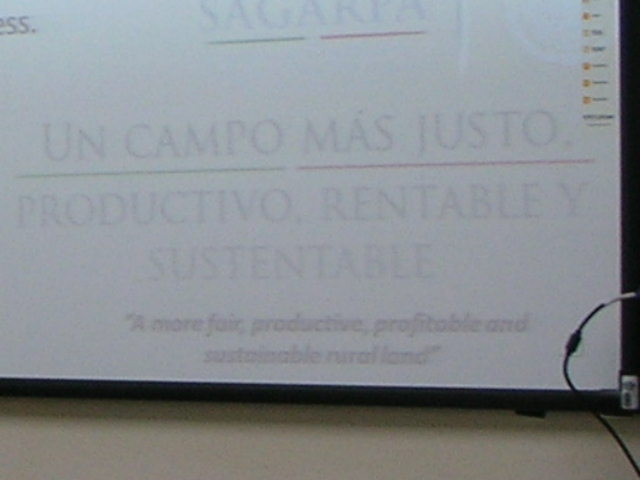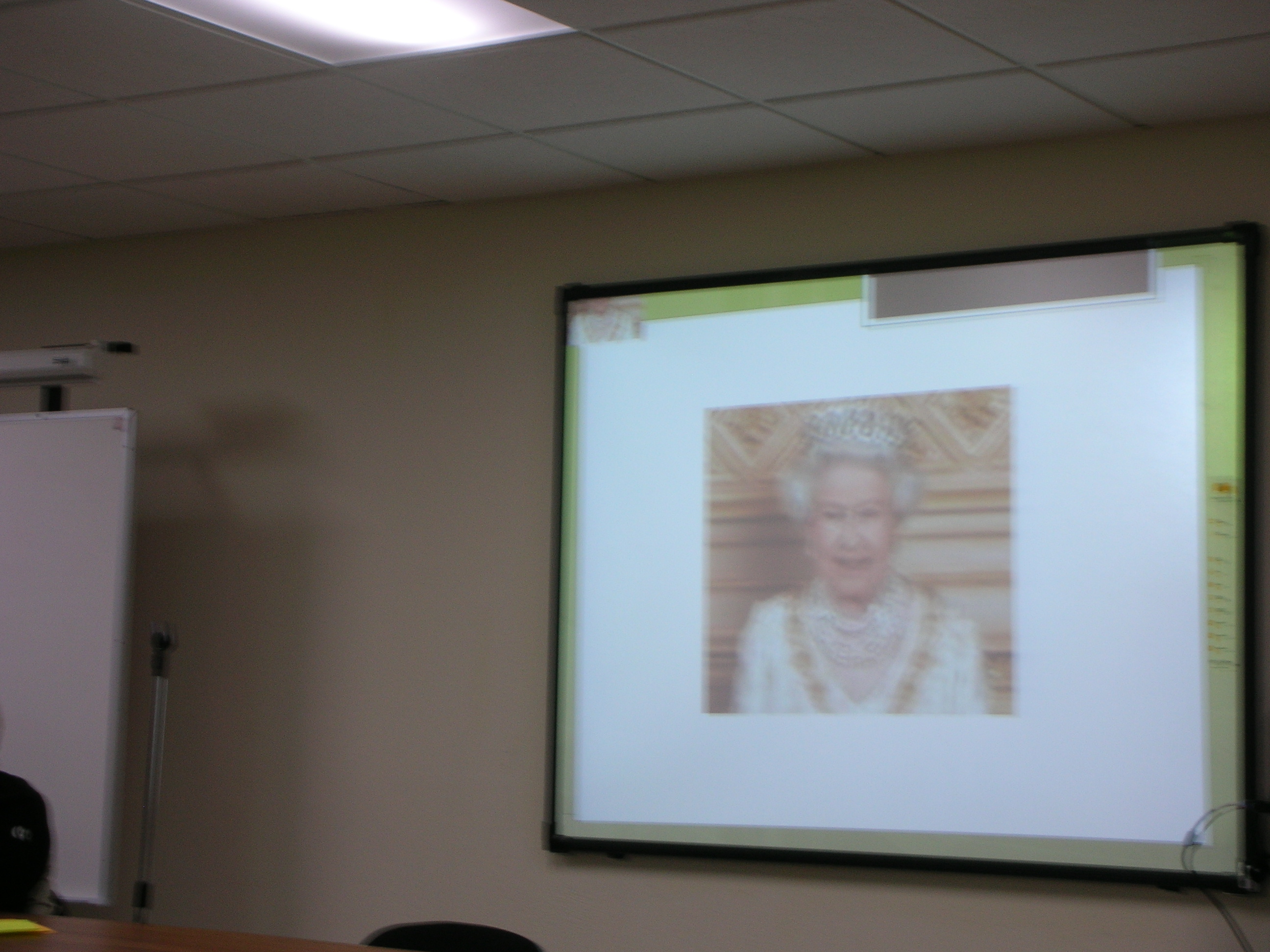Blog #1 – July 1, 2014
by Fabio De Menna
After yesterday’s incredible football-watching experience in the world’s fourth largest square, the Zocalo, a very promising first edition of the second decade of the ICRPS summer Institute officially started this morning. Luckily, but sadly, the Italian national team is already out of the World Cup, so needless to say, all my neurons will be devoted to the yearly renewal of this awesome rural co-learning experience!
Despite the rainy day in Toluca and, personal note, the 2nd night of jet lag, everybody is more than excited to be immersed in two weeks of deep rurality. A brief bus trip took us from our hotel to the very nice UAEM campus. Looking for names on welcome packs, we all took place in our comfy brainstorming room. We also received what looks like the ultimate academic survival kit: a multitasking pen with integrated USB drive and LED pointer…a must have!
After a brief coffee, the UAEM gave us a proper welcome with an inauguration ceremony. Authorities from the University, and in particular, Joel Martinez Bello, dean of the faculty of economics, Gabino Nava Bernal, director of the Institute of Agricultural and Rural Sciences (ICAR), Dr. Rosario Perez Bernal, Secretary of research and advanced studies of the UAEM, and our guest Lidia E. Carvajal intervened, underlining the importance of having ICRPS in Mexico for the first time and warmly welcoming all the participants. After that, members from the UAEM orchestra played for us and the university chorus sang the official anthem of UAEM.
Then, as is tradition in ICRPS, all the participants had a brief chat in couples in order to introduce each other, describing backgrounds, interests and passions.
After a rich Mexican lunch, the afternoon session started with a critical review of the recent land tenure policies in Mexico presented by Héctor Robles Borlanga, from the National Autonomous University of Mexico. He highlighted how government policy objectives and discourses failed to incentivize larger production units and to recognize how small landownership (minifundia) is actually an intrinsic characteristic of Mexican agriculture. He also showed how these policies failed to deliver in terms of productivity as the recent trend towards a negative trade balance increase. Other food for thought included the role played by indigenous (16% of land vs 39% of production and 60% of rural employment without government support) and by the increasing womenization of land ownership (receiving 51% of subsidies as they’re usually better farm managers).
Soon afterward, Dr. Francisco Herrera provided background information on rural development in Mexico and specifically in the Estado de Mexico and on the recently emerging approach to new rurality. Mexican rural areas are usually less productive than other areas, as agriculture is characterized by small landownership devoted to self-subsistence. This reflects into a limited role of primary sector (5% on GDP), outmigration from rural areas to the US (Estato de Mexico is the 4th state as source) or urban areas where ab. 93,6% of the state GDP is generated. That’s why new rurality could play a crucial role in exploiting the territorial capital of Mexican rural areas.
The following comparative session on agriculture and rural conditions in OECD countries gave participants the occasion for a great debate on the diversities of rural areas across US and EU. Ray Bollman highlighted how territorial indicators can show important patterns for decision makers to diminish disparities in terms of demography, while John Devlin stressed the importance of geographical aspects, such as watersheds, when choosing comparative case studies. Bruno Jean then focused on innovation in rural Quebec, while Tom Johnson focused on agriculture in the US, suggesting that probably rural is more relevant to farmers than the other way round. Finally, Lourdes gave an intriguing presentation on the controversies on definitions of what are farms and farmers across Europe, providing a clear example of a “Sofa-farmer”.
This first day finally closed with participants breaking down into groups that will start their “rural policy missions”, with the goal to identify relevant policy issues in Mexico, provide comparative data from their own countries/regions, and come up with preliminary recommendations.
Looking forward for another day of rural exploring!
Photos @Fabio De Menna





